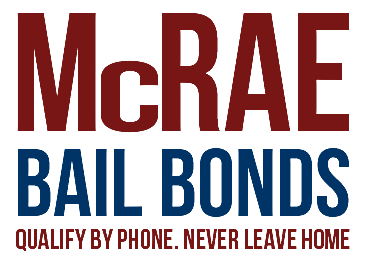
The arrest of a loved one is a bewildering experience. At McRae Bail Bonds in San Antonio, we want to alleviate the stresses of bailing a family member or friend out of jail. The following compilation of common legal terms related to arrests will help you understand the bail bonds and jail release process.
11 Common Legal Terms and Definitions for Bail Bonds
- Arrest – Arrests occur when a citizen is taken into police custody because he or she may have violated the law. When this person is placed in jail, he or she becomes an “inmate.”
- Bail – The amount of money set by a legal official that must be paid before the release of an inmate. Higher bail amounts are generally fixed for inmates allegedly committing the most severe offenses.
- Bail Bond – A bail bond is a written agreement between a bail bondsman and a defendant or person accused of a criminal act. The written agreement typically states that the bondsman must pay the total bail amount or forfeit given collateral if the defendant doesn’t appear on a scheduled court date.
- Bail Bondsman – A bail bondsman posts bail and acts as a “surety” for a defendant. The bail bondsman will only post bail for the defendant under the agreement that the defendant will appear in court on his or her scheduled court date.
- Collateral – The defendant must provide anything that guarantees the bondsman is paid in full.
- Defendant – A person being accused of committing a criminal offense.
- Felony – A serious criminal offense that typically involves violence. The bail amount set will likely be very high if the defendant is accused of a felony.
- Forfeiture– When a defendant skips court, and the bondsman is forced to pay the amount of money guaranteed on a bail bond, a bond forfeiture occurs. Call McRae Bail Bonds today if you have a forfeited bond.
- Indemnitor– A “co-signer” for the defendant’s bail bond pledges to take responsibility for paying a fixed amount to the bail bondsman if a defendant doesn’t appear in court.
- Misdemeanor – All criminal offenses are serious, but misdemeanors are less severe than felonies. Misdemeanors often carry a lesser sentence. They also may be resolved with the payment of a fine or by participating in court-appointed community service.
- Surety—Any person who takes responsibility for the scheduled court appearance of a defendant. When a bail bondsman signs a bail bond, he or she is acting as a surety.
At McRae Bail Bonds, we want to make sure the bail bonds process is as simple as possible. Our bail bond company has been in business for over 30 years and has provided bail bond services for the San Antonio metro area, and Bexar, Guadalupe, Comal, Kendall, Atascosa, Wilson and Medina Counties in Texas. If you need a bail bondsmen to get out of jail in San Antonio, call us immediately at (210) 463-5561.

